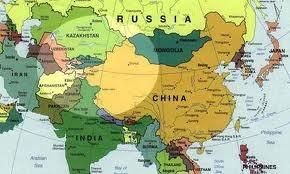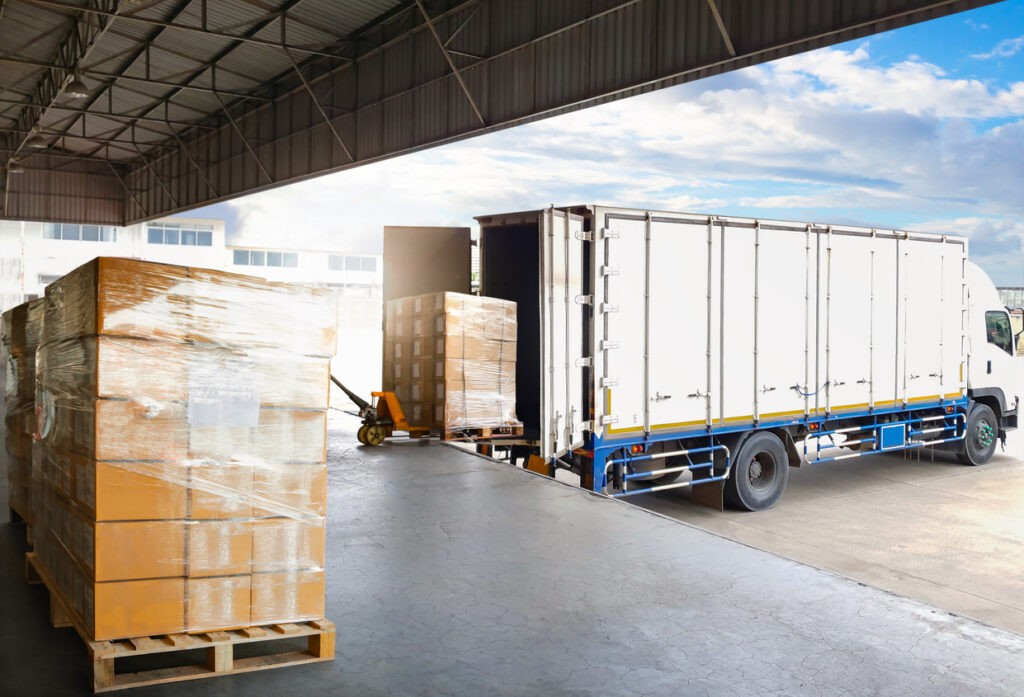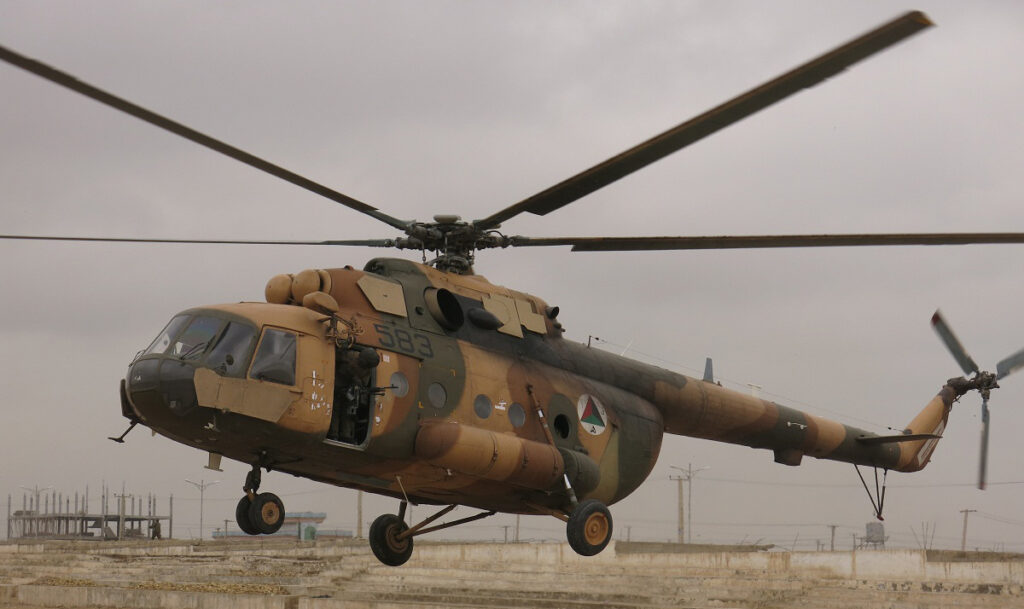BISHKEK (TCA) — The Publisher’s note: Central Asia is an important geopolitical area between Europe, Russia and China. It is in Central Asia that world powers have confronted each other for centuries; it is here that China needs to succeed with its new Silk Road Belt for direct access to the Western markets; and it is here that a large wealth of raw materials has its origin. Every week thousands of news appears all over the world in printed and online media and it is quite understandable that many of them may escape the attention of busy readers. At The Times of Central Asia, we strongly believe that more information can better contribute to peaceful development and better knowledge of the region, and for this reason we are presenting this Weekly Digest of Central Asia which compiles what other media have reported during the past week.
KAZAKHSTAN
Kazakhstan’s Fuel Crisis Sparks Anxiety About National Energy Security
Kazakhstan has been modernizing its three oil refineries since 2009, as many insist the country needs to build a new, fourth refinery to put an end to chronic fuel shortages
Nov 16 — “Despite being the second-largest oil producer and exporter in the former Soviet Union, only behind Russia, Kazakhstan has been historically plagued by chronic deficits of fuel for domestic consumption.” READ MORE: https://jamestown.org/program/kazakhstans-fuel-crisis-sparks-anxiety-national-energy-security/
Kazakhstan is changing its alphabet – here’s why
The ongoing transition from the Russian Cyrillic to a Latin-based alphabet in Kazakhstan is more about politics than language
Nov 21 — “Kazakhstan is to adopt a new alphabet, replacing the Russian Cyrillic script with the alphabet you are reading at the moment. This was announced in October by the Kazakh president, Nursultan Nazarbayev, who signed decree Number 569, which also sets out an expanded version of the Roman alphabet – to be introduced in schools in 2018. The aim is for full transition by 2025.” READ MORE: http://theconversation.com/kazakhstan-is-changing-its-alphabet-heres-why-87466
Kazakhstan launches ‘cyber shield’ concept
Cyber terrorism and cyber-attacks is a serious challenge facing business companies and even entire countries in contemporary world. Kazakhstan is no exception, and the country has taken efforts to thwart the new threat
Nov 22 — “The government of Kazakhstan has approved an action plan, on October 28, to implement the country’s cybersecurity concept—“Cyber Shield”—by 2022 (Zakon.kz, November 1). The document outlines key areas of state policy that will be required to build a modern yet reliable system to mitigate and prevent cyberattacks and threats from hybrid (“new type”) warfare.” READ MORE: https://timesca.com/index.php/news/18962-kazakhstan-launches-cyber-shield-concept
Kazakhstan: financial illiteracy hampering economic recovery
Many households in Kazakhstan still prefer taking out bank loans to meet their everyday financial needs. The practice largely causes non-performing loans — the main problem haunting Kazakhstan’s banking sector for more than a decade
Nov 23 — “Kazakhstan’s National Bank will embark on research next year to find out just how well people understand how to handle their personal finances. The research will support a state program to enhance financial literacy.” READ MORE: https://timesca.com/index.php/news/18968-kazakhstan-financial-illiteracy-hampering-economic-recovery
First CryptoTenge, Now State Association: Kazakhstan Wakes Up To Cryptocurrency
Kazakhstan may adopt its own state cryptocurrency, the CryptoTenge, as the country has to somehow respond to the emerging trend in the interational financial market
Nov 24 — “Kazakhstan is considering state licensing of a Blockchain and cryptocurrency lobby group to promote usage and acceptance of the emerging technology. As local news outlet Astana Times reports referencing Kapital.kz, the Blockchain and Cryptocurrency Association has applied for recognition from the country’s government as a legal entity to begin official activities.” READ MORE: https://cointelegraph.com/news/first-cryptotenge-now-state-association-kazakhstan-wakes-up-to-cryptocurrency
Aussie becomes face of Kazakhstan tourism
Kazakhstan is taking big efforts to attract more foreign tourists, with around 6 million people visiting the country a year, with many of them coming from China
Nov 24 — “An Australian man has become the face of a former Soviet state’s tourism industry. Cairns-raised Robert Boyd hosts one of Kazakhstan’s top tourist TV shows, gaining global popularity.” READ MORE: http://www.skynews.com.au/culture/offbeat/2017/11/24/aussie-becomes-face-of-kazakhstan-tourism.html
KYRGYZSTAN
Kyrgyzstan ensures smooth operation of country’s largest gold mine
When it comes to environmental concerns with regard to the operation of the Kumtor gold mine, the economic considerations always come first — as Kumtor accounts for a big portion of the country’s state-budget revenues
Nov 19 — “Kyrgyzstan’s Parliament has approved amendments to the country’s Water Code which allow the development of Davydov and Lysyi glaciers at the country’s largest gold deposit, Kumtor. The amendments are necessary for the State Agency for Environmental Protection and Forestry to permit further work at the deposit.” READ MORE: https://timesca.com/index.php/news/18946-kyrgyzstan-ensures-smooth-operation-of-country-s-largest-gold-mine
Expert: Kyrgyzstan complains to UN feeling no danger for itself
Having failed to resolve its border problem with Kazakhstan within the framework of the Eurasian Economic Union mechanisms, Kyrgyzstan appealed to the UN
Nov 21 — “Having received no support from Russia in its conflict with Kazakhstan, the Kyrgyz leadership decided to bring the history of the conflict to the United Nations. Kyrgyzstan’s permanent mission at the UN has informed the member states of the situation on the border of Kyrgyzstan and Kazakhstan, namely about the current kilometers-long traffic jam along the border that emerged after Astana toughened the border control on October 10.” READ MORE: https://eadaily.com/en/news/2017/11/21/expert-kyrgyzstan-complains-to-un-feeling-no-danger-for-itself
Uzbekistan wants to become shareholder in Kambar-Ata HPP-1 construction project
Once the main opponent to the construction of the Kyrgyz hydro plant, Uzbekistan has now turned into Kyrgyzstan’s main ally in implementing the project
Nov 23 — “Uzbekistan is interested in becoming a shareholder in the construction of Kambar-Ata HPP-1. This was stated by Kyrgyz Prime Minister Sapar Isakov during the session of the Jogorku Kenesh on November 23, Kyrgyz media outlets reported.” READ MORE: https://www.azernews.az/region/122728.html
Kyrgyzstan: New President Takes Office in Historic Handover
For the first time since independence, Kyrgyzstan has a new president in a peaceful handover of power, instead of a revolution as it happened twice before
Nov 24 — “Kyrgyzstan has a new president. And this time it is not because the country has been roiled by revolution. Sooronbai Jeenbekov, 59, was formally sworn into office on November 24 at the presidential Ala-Archa residence, formally bringing a close to Almazbek Atambayev’s tenure.” READ MORE: http://www.eurasianet.org/node/86161
TAJIKISTAN
Tajikistan: President Seizes on Audiobook Fad
Tajikistan is seeing a mounting cult of personality of its President Rahmon, whose grip on power affects almost all spheres of life in the country
Nov 22 — “The president of Tajikistan appears to be seizing on the audiobook fad now proving such a boon to the publishing industry by requiring national broadcasters to read out his written works on the air.” READ MORE: http://www.eurasianet.org/node/86136
13 Things Banned (or Strongly Discouraged) in Tajikistan
Authorities in Tajikistan have been consistenly restricting personal freedoms of Tajik citizens, with some bans looking funny while actually intruding into almost all spheres of public life
Nov 23 — “Over the last few years, ex-Soviet Tajikistan has developed a reputation as a country that likes to ban things. While some of the bans appear linked to the government’s fears over religious extremism, others are more difficult to fathom.” READ MORE: https://globalvoices.org/2017/11/23/here-are-13-things-that-are-banned-in-tajikistan/
Iran not to exclude possibility of gas export to Tajikistan
Tajikistan can export electricity and water to Iran and get Iranian natural gas in exchange. This, however, requires investments and improvement in Tajik-Iranian relations that have deteriorated of late
Nov 24 — “Attraction of investments for the transit of Iranian gas to Tajikistan can be a turning point in improving economic relations between the two countries. This was stated by the Iranian parliament speaker, Ali Larijani, on the sidelines of the 10th plenary meeting of the Asian Parliamentary Assembly (APA), Iranian media outlets reported.” READ MORE: https://www.azernews.az/region/122789.html
TURKMENISTAN
Production of export high octane gasoline starts at Seydi Refinery
Turkmenistan is diversifying its oil and gas sector by introducing facilities producing petroleum products with higher added value, such as high-octane gasoline and polymers
Nov 21 — “Seydi Refinery produced 100 thousand tons of gasoline with high octane number after reconstruction. Catalytic reforming unit LC-35-11/1000, designed for production of high-octane component used in production of gasoline, has been commissioned few months ago.” READ MORE: http://www.turkmenistan.gov.tm/_eng/?id=9472
Turkmen–German project for management of land and woodland resources in Amudarya zone is coming to the end
The Turkmen–German project was aimed at the protection of endemic forests with rare species and reduction of ecological, social and economic problems caused by the climate change
Nov 22 — “At present day, Turkmenistan joined more than twenty international ecology treaties, adopted numbers of natural protection laws and legislative acts. The measures for mitigation of the consequences related to the climate change have been included to the main State programmes.” READ MORE: http://www.turkmenistan.gov.tm/_eng/?id=9485
Coke Eyes Turkmenistan Exit
Turkmenistan Coca-Cola Bottlers seems to become another victim of the country’s economic crisis
Nov 23 — “Turkmenistan Coca-Cola Bottlers has suspended operations and could soon shut down its business. The company has operated in the country for almost 20 years and was an official sponsor of the Asian Games in September, Ashgabat’s multi-billion dollar sporting extravaganza.” READ MORE: http://www.tol.org/client/article/27360-turkmenistan-economy-coca-cola-business.html
UZBEKISTAN
Russia tacitly entices Uzbekistan with benefits of EEU, CSTO membership
After the death of longtime Uzbek President Islam Karimov, who preferred that Uzbekistan stay away from any Russia-led economic or military bloc, Moscow is currently taking active steps to get Tashkent involved in Russia’s sphere of economic, and political, influence. Will Tashkent continue its new rapprochement with Moscow?
Nov 18 — “Since President Shavkat Mirziyaev’s state visit to Moscow in April 2017, bilateral relations between his country of Uzbekistan and Russia have been steadily expanding. And the frequency of subsequent bilateral exchanges suggests that this trend will most likely continue with the full support of both governments (RIA Novosti, November 2).” READ MORE: https://timesca.com/index.php/news/18945-russia-tacitly-entices-uzbekistan-with-benefits-of-eeu-csto-membership
Could Uzbekistan Lead Central Asia?
A previously isolated state, Uzbekistan now calls for tighter regional integration in Central Asia with the aim to create ‘a stable, economically developed and thriving region’
Nov 22 — “Uzbek president Shavkat Mirziyoyev has called for closer cooperation between all five countries of Central Asia in a move which some believe signals a new and more vigorous regional role for Tashkent.” READ MORE: https://iwpr.net/global-voices/could-uzbekistan-lead-central-asia
Toward a New Uzbekistan
Senior vice president of the American Foreign Policy Council in Washington, D.C. analyzes Uzbekistan’s far-reaching reform and modernization program
Nov 22 — “You could call it “Extreme Makeover: Central Asian Edition.” Today, among the five post-Soviet republics that make up the region, there are heartening signs of political dynamism and a newfound drive for integration.” READ MORE: https://www.usnews.com/opinion/world-report/articles/2017-11-22/5-ways-uzbekistan-is-modernizing-its-economy-and-state
Uzbekistan Strikes Multibillion Dollar Deals in Korea, Seeks Mining Help
South Korea has joined the club of Uzbekistan’s largest foreign investors that now includes Russia, China, and Turkey
Nov 23 — “In his latest foray in the mission to reopen his nation to the world, Uzbekistan’s president embarked this week on a state visit to South Korea, where he has sealed $8.9 billion in commercial agreements.” READ MORE: http://www.eurasianet.org/node/86151
AFGHANISTAN
Afghanistan and the International Criminal Court
The International Criminal Court in the Hague wants to investigate crimes by Afghan government forces, anti-government groups such as the Taliban, and foreign forces – notably those allegedly committed by the US military and intelligence
Nov 20 — “On November 20, 2017, the prosecutor of the International Criminal Court (ICC), Fatou Bensouda, requested permission from the court’s judges to authorize an investigation into possible war crimes and crimes against humanity in Afghanistan since May 1, 2003.” READ MORE: https://www.hrw.org/news/2017/11/20/afghanistan-and-international-criminal-court
This ‘New’ US Plan In Afghanistan Sure Sounds A Lot Like A Failed Strategy We Tried In Vietnam
As the Kabul government actually controls 15% less territory now than two years ago, the US and Afghan governments are building a new Afghan security force that will consist of self-defence units of locally recruited men serving in their own villages. Will this plan succeed in establishing law and order in the country?
Nov 22 — “For months now, U.S. leadership has been working with Afghan president Ashraf Ghani to stand up a new “territorial force” to fend off Taliban elements on the local level.” READ MORE: http://taskandpurpose.com/new-us-plan-afghanistan-sounds-lot-like-old-failed-vietnam-strategy/
Now Putin Is Being Asked to Bring Peace to Afghanistan
Russia earlier admitted it has had contacts with the Taliban, and Moscow surely has levers of influence on this militant group, using the so-called Taliban threat to Central Asia for its geo-strategic purposes in this region
Nov 23 — “Russia must press the Taliban to enter peace talks in Afghanistan, while an international inquiry should establish whether the Kremlin is arming the insurgent group, according to a senior Afghan official.” READ MORE: https://www.bloomberg.com/news/articles/2017-11-23/russia-must-pressure-taliban-to-seek-peace-afghanistan-says
‘Still in a stalemate,’ top U.S. commander in Afghanistan says
President Trump outlined his new strategy for Afghanistan in August, which was followed up by the deployment of 3,000 additional US troops in the country in an effort to suppress terrorism and bring about a political settlement with the Taliban
Nov 24 — “America’s top commander in Afghanistan, Gen. John Nicholson, told NBC News Thursday that the war here remains in a “stalemate,” but that President Donald Trump’s new strategy has reversed a decline in the U.S. position.” READ MORE: https://www.nbcnews.com/politics/national-security/still-stalemate-says-top-u-s-commander-afghanistan-n823671
WORLD
Kazakhstan and Central Asia: international terrorism without borders
Western observers tend to blame the “authoritarian” governments in Central Asia for using too much sticks and too few carrots where it comes to constraining the rise of “Islamic” extremism in their countries — but this may not be the true cause of the problem
Nov 21 — “It has been no one less than Kazakhstan’s head of state and veteran politician Nursultan Nazarbayev who was lately quoted by Tass as stating that “the re-emergence of terrorist cells following the heavy blow dealt to Islamic State in the Middle East is a serious challenge for Eurasian states. […] International terrorism has acquired a catastrophic scope, it has no borders. Any part of the globe can become a target for a disastrous onslaught.” READ MORE: https://timesca.com/index.php/news/26-opinion-head/18957-kazakhstan-and-central-asia-international-terrorism-without-borders
The Age of Economic Alliances Between Russia, China and India
Chief economist with the Eurasia Development Bank speaks about some of the major economic alliances between Russia, China and India
Nov 24 — “The World Bank has recently issued a report on the influence of the economic development of India and China on the Russian economy. This is important, because what is happening now in terms of bringing the economies of these countries together has global importance.” READ MORE: https://sputniknews.com/radio_level_talk/201711231059358008-the-age-of-economic-alliances-between-russia-china-and-india/
What Has China Accomplished in Central and Eastern Europe?
With the “16+1” scheme, a component of the Belt and Road Initiative, China is expanding its trade and investment relations with Central and Eastern Europe, with Central Asia lying in between and being used as a bridge for transport and transit
Nov 25 — “It is that time of the year again when optimism about new investment in Eastern Europe is thick in the air. Expectation are high as the sixth “16+1” meeting will take place in Budapest this upcoming Sunday. Launched first in 2012, the “16+1” Cooperation Framework includes 16 countries in Central, Eastern, and Southeastern Europe. This regional approach brings together a very diverse group of countries between the two seas, from the Baltics to the Balkans.” READ MORE: https://thediplomat.com/2017/11/what-has-china-accomplished-in-central-and-eastern-europe/









